new posts in all blogs
Viewing: Blog Posts Tagged with: mary oliver, Most Recent at Top [Help]
Results 1 - 25 of 29
How to use this Page
You are viewing the most recent posts tagged with the words: mary oliver in the JacketFlap blog reader. What is a tag? Think of a tag as a keyword or category label. Tags can both help you find posts on JacketFlap.com as well as provide an easy way for you to "remember" and classify posts for later recall. Try adding a tag yourself by clicking "Add a tag" below a post's header. Scroll down through the list of Recent Posts in the left column and click on a post title that sounds interesting. You can view all posts from a specific blog by clicking the Blog name in the right column, or you can click a 'More Posts from this Blog' link in any individual post.

By:
Beth Kephart ,
on 12/29/2016
Blog:
Beth Kephart Books
(
Login to Add to MyJacketFlap)
JacketFlap tags:
Best American Essays 2015,
Caroline Paul,
Christopher Castellani,
James Gleick,
Kendra Atleework,
Mary Oliver,
The Art of Perspective,
The Gutsy Girl: Escapes for Your Life of Epic Adventure,
Time Travel,
Add a tag
I shall get to the end of this story momentarily, but I will begin with this: The other day, while running on one of those machines at the gym, I was accompanied by a young friend with whom I most often disagree. We sit on opposite sides of the political spectrum. Her tendency is to yell (she'd be the first to admit this; she's adorable when she admits this), while my tendency is to ask questions and listen. She is smart, fierce, interesting, and I don't mind. In her advocacy for the positions that will soon represent the U.S., I listen for facts I might not have otherwise encountered.
We were fifteen minutes into our workout when the conversation escalated. "You're what's wrong with America," she said, loud enough for the entire gym (okay, maybe only our section) to hear. "Nobody in this country reads."
"Are you suggesting I don't read?" I said, and for the first time in any of our conversations, I heard defensiveness creep into my tone. I thought of the hours upon hours, every day, that I spent during the election year—reading, watching, and listening. So many hours that my life had become knotted up with the news, that my conversations were always tilting toward the political, that my home life was growing obstructed by my dark glaring over the dinner table at a husband who was not responsible for the world tumult. So many hours that I was no longer reading the books that gave me comfort—the true works of art that stand above, and beyond.
I gave away so much time in 2016 to learning the issues and refining my point of view that I didn't just lose all kinds of professional ground. I lost one of the things that gives me joy—peaceful times with books that rise above the cacophony.
In this past week, in the post-Christmas quiet, I have returned, with force, to these many books that have been sitting here. I have a semester of memoir to teach at Penn, an honors thesis student whose fiction I will guide, four upcoming
Juncture memoir workshops to plan for, and a number of book projects of my own. I don't know what will happen with any of this—I have not met my students, I have not advertised the workshops, I am perched on the ledge of essential revisions—but I do know that I can do nothing that I'm supposed to be doing if I do not sit and read.
And so I have been reading, and now you have reached that place in this post place where I list some of the books I have been curled up with these past few days. One after the other, these books have made me glad. For their intelligence and craft. For their beacon shimmer. For the inspiration that they give me.
Everywhere I Look, Helen Garner. For my thoughts on this collection of essays, go
here.
Best American Essays 2015, edited by Ariel Levy. Within these pages I found old favorites (Roger Angell, Isiah Berlin, Sven Birkerts, Hilton Als, Justin Cronin, Rebecca Solnit, Zadie Smith, Anthony Doerr, Margo Jefferson) and new voices (Kendra Atleework, Tiffany Briere, Kate Lebo). Here is Atleework, in a gorgeous essay called "Charade," writing of her mother just before she died. Such simple words here. And so very moving.
A few months before, she was beautiful—you could still see it in flashes. Her hair was thick and blondish, and her body was round in some places and slender in others. Her hands, always cold, held pens and typed and cooked scrambled eggs. Her eyes were blue and her heels were narrow. She looked a lot like me.
The Art of Perspective, Christopher Castellani (Graywolf Press Series)—a refreshingly smart examination of narrative strategy and literary point of view. This may be a craft book, but there is, within the pages, a kind of suspense as the author presents his own quandaries about a story he might write. I could quote this entire book. But this should give you a taste for Castellani's smarts:
Why bother to write if you don't have a view worthy of sharing? I think we judge the literary merit of a text not merely by how closely we relate to the characters' experiences—that's the relatively easy part of the author's job—but by how strongly the author's ultimate vision compels us, provokes us, challenges us, or makes new the everyday.
The Gutsy Girl: Escapades for Your Life of Epic Adventure, Caroline Paul illustrated by Wendy MacNaughton. I'll be honest. I did not know about this
NYT bestseller until I read about it in
Brain Pickings. I bought it for my niece (to be perfectly honest), and I was just planning to scan enough of it so that we might speak of it later. Well. Hold the scissors. I could not stop. This is a memoir/history/how-to/diary journal with pictures, all in one. But it's not just the cleverness of the design that strikes me hard. It's the cleverness of the prose. Paul begins with a story from her youth, when she set out to build a boat out of milk cartons:
I envisioned a three-masted vessel, with a plank off to one side (of course) and a huge curved prow that ended in an eagle head. So I set about collecting milk cartons. I collected from my school cafeteria. I collected from my friends. I collected from my family. I soon became familiar with the look on their faces when I explained I was building a milk carton pirate ship. It was actually a combination of looks, all rolled into one. Hahaha, what a crazy idea, the expression said. And Good luck, kid, but I don't think it's going to happen. And, Well, at least I'm getting ride of my milk cartons. Then at the very end of this facial conga-dance, I always caught something else. Actually, that sounds like FUN. I wish I could do that, the final look exclaimed.
(Sorry, Niece Julia, I did not write in your book or dog ear its pages. I hope you like it as much as I do.)
Upstream: Selected Essays, Mary Oliver. Truth Alert! I just got this book yesterday, and I haven't finished reading yet. But I do love the three essays I've read, and I want to share this small bit from the first page. This is from the first paragraph, right at the end. It goes like this:
What a life is ours! Doesn't
anybody in the world anymore want to get up in the
middle of the night and
sing?
(Just like that, Oliver breaks into a song. Huzzah!)
Time Travel, James Gleick. Full Disclosure, Which is Bigger Than a Truth Alert. I bought this book for another niece, Claire, because I have a little tradition with Claire that includes the purchases of books. What are you seeking? I asked her this year. She said science, nonfiction, a good memoir were her new cup of tea (
a good memoir! did you see that?). I bought her a copy of this book and me a copy of this book, because I'm teaching concepts of time this year in my Penn classroom, and I might as well make myself cool and contemporary. Claire, I have not broken the spine on YOUR copy of this book. I hope we both love it and can talk of it someday.
Finally, sitting here during my many months of not reading much but that which I had to read, has been a book mailed to me by Carrie Pepper, a book called
Missing on Hill 700. This is Carrie's tribute to a brother lost in a firefight during the Vietnam War. She was thirteen when the telegram arrived. Her family ultimately crumbled from the news. Carrie's decision was to seek out news of the brother she had lost, and through the letters and photos that others send, a mosaic of a life emerges—a mosaic and also hope that Tony's remains will finally make their way home. The subtitle tells you much about Pepper's heart and purpose: "How Losing a Brother in Vietnam Created a Family in America."
Every week, poets, book bloggers, librarians, and other bookworms share their original or favorite poems as part of Poetry Friday. (Learn more at Poetry Foundation.) I participate at my blog, Bildungsroman. I tend to select poems based on my mood or recent events. This month, I shared four Mary Oliver poems, including her aptly-titled piece August:
When the blackberries hang
swollen in the woods, in the brambles
nobody owns, I spend
all day among the high
branches, reaching
my ripped arms, thinking
of nothing, cramming
the black honey of summer
into my mouth; all day my body
accepts what it is. In the dark
creeks that run by there is
this thick paw of my life darting among
the black bells, the leaves; there is
this happy tongue.
What poems or poets make you think of summer? Leave a comment below and let us know!
Special thanks to my friend and fellow writer
Courtney Sheinmel for introducing me to Mary Oliver's poetry a few years ago!
I go down to the edge of the sea.
How everything shines in the morning light!
The cusp of the whelk,
the broken cupboard of the clam,
the opened, blue mussels,
moon snails, pale pink and barnacle scarred -
and nothing at all whole or shut, but tattered, split,
dropped by the gulls onto the gray rocks and all the moisture gone.
It's like a schoolhouse
of little words,
thousands of words.
First you figure out what each one means by itself,
the jingle, the periwinkle, the scallop
full of moonlight.
Then you begin, slowly, to read the whole story.
- Breakage by Mary Oliver
View all posts tagged as Poetry Friday at Bildungsroman.
View the roundup schedule at A Year of Reading.
Learn more about Poetry Friday.
Don't call this world adorable, or useful, that's not it.
It's frisky, and a theater for more than fair winds.
The eyelash of lightning is neither good nor evil.
The struck tree burns like a pillar of gold.
- the beginning of Where Does the Dance Begin, Where Does It End? by Mary Oliver
Read the poem in its entirety.
View all posts tagged as Poetry Friday at Bildungsroman.
View the roundup schedule at A Year of Reading.
Learn more about Poetry Friday.
One day you finally knew
what you had to do, and began,
though the voices around you
kept shouting
their bad advice--
though the whole house
began to tremble
and you felt the old tug
at your ankles.
"Mend my life!"
each voice cried.
But you didn't stop.
You knew what you had to do,
though the wind pried
with its stiff fingers
at the very foundations,
though their melancholy
was terrible.
It was already late
enough, and a wild night,
and the road full of fallen
branches and stones.
But little by little,
as you left their voices behind,
the stars began to burn
through the sheets of clouds,
and there was a new voice
which you slowly
recognized as your own,
that kept you company
as you strode deeper and deeper
into the world,
determined to do
the only thing you could do--
determined to save
the only life you could save.
- The Journey by Mary Oliver
View all posts tagged as Poetry Friday at Bildungsroman.
View the roundup schedule at A Year of Reading.
Learn more about Poetry Friday.
You do not have to be good.
You do not have to walk on your knees
For a hundred miles through the desert, repenting.
You only have to let the soft animal of your body
love what it loves.
Tell me about your despair, yours, and I will tell you mine.
Meanwhile the world goes on.
Meanwhile the sun and the clear pebbles of the rain
are moving across the landscapes,
over the prairies and the deep trees,
the mountains and the rivers.
Meanwhile the wild geese, high in the clean blue air,
are heading home again.
Whoever you are, no matter how lonely,
the world offers itself to your imagination,
calls to you like the wild geese, harsh and exciting --
over and over announcing your place
in the family of things.
- Wild Geese by Mary Oliver
Listen to Mary Oliver read her poem Wild Geese on the program Listening to the World
Related Posts at Bildungsroman:
If I Were by Mary Oliver
Next Time by Mary Oliver
How I Go to the Woods by Mary Oliver
The Uses of Sorrow by Mary Oliver
Starlings in Winter by Mary Oliver
I Want to Write Something So Simply by Mary Oliver
View all posts tagged as Poetry Friday at Bildungsroman.
View the roundup schedule at A Year of Reading.
Learn more about Poetry Friday.

By: Maryann Yin,
on 7/1/2015
Blog:
Galley Cat (Mediabistro)
(
Login to Add to MyJacketFlap)
JacketFlap tags:
Libraries,
Pablo Neruda,
Laurie Halse Anderson,
Library of Congress,
Amy Tan,
Mary Oliver,
Art Spiegelman,
Walter Isaacson,
Sandra L. Pinkney,
Elie Wiesel,
Wendell Van Draanen,
Add a tag
 Have you ever written a letter to one of your favorite authors?
Have you ever written a letter to one of your favorite authors?
More than 50,000 young readers (grades 4 through 12) participated in the Library of Congress’ Letters About Literature program. Each participant was tasked with writing a letter to an author (living or deceased) about how one of their books affected them.
According to the press release, this “initiative is a reading-promotion program of the Center for the Book, with the goal of instilling a lifelong love of reading in the nation’s youth.” Below, we’ve posted the full list of winners and honors.
Level 1 (Grades 4 to 6)
National Prize: Gerel Sanzhikov of New Jersey’s letter focused on The Running Dream by Wendell Van Draanen.
National Honor Award: Chelsea Brown of Virginia’s letter focused on Shades of Black by Sandra L. Pinkney.
Level 2 (Grades 7 to 8)
National Prize: Gabriel Ferris of Maine’s letter focused on Steve Jobs by Walter Isaacson.
National Honor Award (three-way tie): Emmy Goyette of New Hampshire’s letter focused on Speak by Laurie Halse Anderson.
Jonathan Hoff of New Jersey’s letter focused on Maus by Art Spiegelman.
Julianna Gorman of Maryland’s letter focused on Night by Elie Wiesel.
Level 3 (Grades 9 to 12)
National Prize: Aidan Kingwell of Illinois’ letter focused on the Mary Oliver poem \"When Death Comes.\"
National Honor Award (tied between two participants): Lisa Le of the District of Columbia’s focused on The Joy Luck Club by Amy Tan.
Hannah DesChamp of Oregon’s letter focused on the Pablo Neruda poem \"I Do Not Love You Except Because I Love You.\"
I so enjoyed April Halprin Wayland's interview with Paul B. Janeczko! Thank you, April!
And congratulations to Jone M, who won IN DEFENSE OF READ-ALOUD!
Continuing our celebration of poetry, here's another of my favorite poets.
 |
| morguefile.com |
Cynthia Cotten is a gentle writer. Her poetry sparkles like the water on a creek chanced upon during an early morning walk. Very gentle and soothing, and unexpected. Cynthia’s poetry, like all good poetry, is an emotional exchange. The language of the poem, as Mary Oliver taught us, is the language of the particulars. And Cynthia’s language incorporates images that are at once tender and sensuous. Her rhythm twinkles, as in her
Night Light, and sometimes the rhythm pops like a good smirk, as in her
Ack!
But sometimes, just like that early morning creek, Cynthia's poems sends shivers up our spine, as in her poem,
Missing.
Night Light Twinkle, twinkle, little star,
I know what you really are:
a blinking bug in flickering flight,
lighting up my yard tonight,
in the treetops, near the ground,
winking, flashing all around.
I watch you and I'm mystified--
how did you get that bulb inside?
(from Switching on the Moon: A Very First Book of Bedtime Poems, collected by Jane Yolen and Andrew Fusek Peters. Illustrated by G.Brian Karras. Candlewick Press, 2010)
ACK! I always know just what to say.
The perfect words are there--
words that render others speechless,
uttered with such flair.
My comments are insightful,
my wit is unsurpassed.
Oh, yes, I know just what to say--
too bad the moment's passed.
(
from The Poetry Friday Anthology for Middle School - compiled by Sylvia Vardell and Janet Wong. Pomelo Books, 2013)
Missing My brother is a soldier
in a hot, dry
sandy place.
He's missing--
missing things like
baseball, barbecues,
fishing, French fries,
chocolate sodas,
flame-red maple trees,
blue jays,
and snow.
I'm missing, too--
missing
his read-out-loud voice,
his super-special
banana pancakes,
his scuffed-up shoes
by the back door,
his big-bear
good night
hug.
There are people
with guns
in that land of sand
who want to shoot
my brother.
I hope
they miss him,
too.
(
from America at War - Poems selected by Lee Bennett Hopkins. Illustrated by Stephen Alcorn. Margaret K. McElderry Books, 2008)
 |
morguefile.com
|
“Hello, sun in my face. Hello you who made the morning and spread it over the fields...Watch, now, how I start the day in happiness, in kindness.” -- Mary Oliver And don't forget our giveaway! Enter here to win an autographed copy of Paul's newest anthology, his 50th book, Death of a Hat, illustrated by Chris Raschka. You can enter between now and 4/22/15 (which just happens to be TeachingAuthors' 5th Blogiversary!)Bobbi Miller

By: James Preller,
on 12/26/2014
Blog:
James Preller's Blog
(
Login to Add to MyJacketFlap)
JacketFlap tags:
the writing process,
Readings,
Mary Oliver,
John Berryman,
James Preller,
W.S. Merwin,
Back to the Future,
Preller poetry,
"You can't you can never be sure",
a bride married to amazement,
A writer goes out of print,
Merwin Berryman,
Tell me what is it you plan to do with your one wild and precious life?,
When Death Comes Mary Oliver,
you die without knowing,
Add a tag
-
I’ve been reading more poetry lately, like returning to an old friend, and this morning want to share two things.

Poet John Berryman, who died without knowing.
First, from this morning, rereading a poem by W.S. Merwin titled “Berryman.” I’ll give you the last seven lines, you can look up the rest:
-
I asked how can you ever be sure
that what you write is really
any good at all and he said you can’t
-
you can’t you can never be sure
you die without knowing
whether anything you wrote was any good
if you have to be sure don’t write
-
As for me, I hear those words and accept them in my heart as true. Self-doubt seems central to the experience, though it’s nearly impossible to write without wild spasms of self-confidence. It’s why some writers drink, I’m sure, to trick yourself into feeling that way.
You die without knowing, that line, transcends the subject of writing. We can’t ever be sure, but we persist, and we can at times, in fact, think so. We may say, quietly, in bed to our loved one, “I think it’s a good book.” And we might even believe it. But in the next moment, in the silence between our last word and her reply, we can also know that our life has a been a delusion, a failure, and that none of it amounts to much of anything at all, when we had hoped for so much more.
Ah, the writing life.
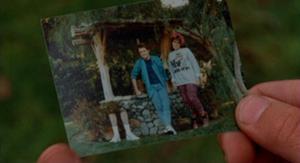 I’ve had so many books go out of print over the past two years. Just a staggering number, more than 40 books . . . going, going, gone. It’s the business I’m in, there are all sorts of rational reasons, excuses, palliatives I can apply. But still, it cuts deep. It just does. It feels like that photograph in the movie “Back to the Future.” Marty keeps looking at it, panicked, watching the images slowly disappear.
I’ve had so many books go out of print over the past two years. Just a staggering number, more than 40 books . . . going, going, gone. It’s the business I’m in, there are all sorts of rational reasons, excuses, palliatives I can apply. But still, it cuts deep. It just does. It feels like that photograph in the movie “Back to the Future.” Marty keeps looking at it, panicked, watching the images slowly disappear.
Maybe that’s what alzheimer’s feels like during brief snatches of clarity. You are helplessly aware that it’s all slipping away, and you can’t even be sure that any of it was real.
If you have to be sure don’t write, Berryman tells us, through Merwin. Such is life. You can’t you can never be sure. What can you do? You write some more, and hopefully it will be good.
Two nights ago I stood up at the head of the table — we were hosting friends and family on Christmas Eve, just a lovely evening — and I said a few words in preamble to a poem I wanted to share, Mary Oliver’s “When Death Comes.”
Which is funny, right? The title got a chuckle. Typical Jimmy, to go dark at a time like this. But the truth about darkness is that it gives us an appreciation of light. Poems purportedly “about” death are really about life. At least, that’s certainly the case here. “I want to say all my life/I was a bride married to amazement.”
I hope you like it.
When Death Comes
When death comes
like the hungry bear in autumn;
when death comes and takes all the bright coins from his purse
to buy me, and snaps the purse shut;
when death comes
like the measle-pox
when death comes
like an iceberg between the shoulder blades,
I want to step through the door full of curiosity, wondering:
what is it going to be like, that cottage of darkness?
And therefore I look upon everything
as a brotherhood and a sisterhood,
and I look upon time as no more than an idea,
and I consider eternity as another possibility,
and I think of each life as a flower, as common
as a field daisy, and as singular,
and each name a comfortable music in the mouth,
tending, as all music does, toward silence,
and each body a lion of courage, and something
precious to the earth.
When it’s over, I want to say all my life
I was a bride married to amazement.
I was the bridegroom, taking the world into my arms.
When it’s over, I don’t want to wonder
if I have made of my life something particular, and real.
I don’t want to find myself sighing and frightened,
or full of argument.
I don’t want to end up simply having visited this world.
–Mary Oliver
-
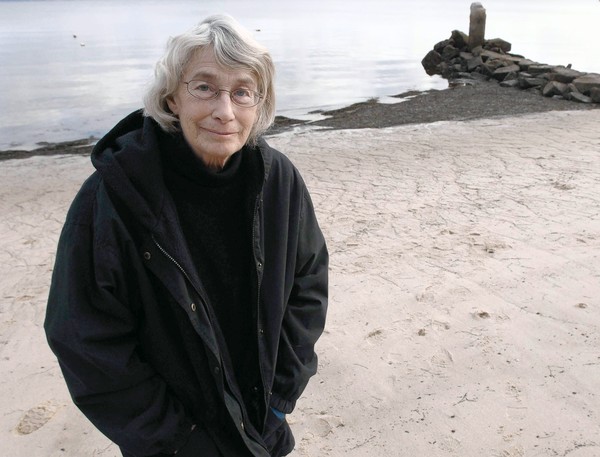
Mary Oliver: “Tell me, what is it you plan to do with your one wild and precious life?”

By: Mary Oliver,
on 12/3/2014
Blog:
PowellsBooks.BLOG
(
Login to Add to MyJacketFlap)
JacketFlap tags:
Poetry,
Mary Oliver,
Doris Kearns Goodwin,
Nadine Gordimer,
Hafiz,
What I'm Giving,
Coleman Barks,
Neil Sheehan,
Richard Holmes,
Robert D. Richardson,
Add a tag
At Powell's, we feel the holidays are the perfect time to share our love of books with those close to us. For this special blog series, we reached out to authors featured in our Holiday Gift Guide to learn about their own experiences with book giving during this bountiful time of year. Today's featured giver [...]
Next time what I'd do is look at
the earth before saying anything. I'd stop
just before going into a house
and be an emperor for a minute
and listen better to the wind
or to the air being still.
When anyone talked to me, whether
blame or praise or just passing time,
I'd watch the face, how the mouth
has to work, and see any strain, any
sign of what lifted the voice.
And for all, I'd know more -- the earth
bracing itself and soaring, the air
finding every leaf and feather over
forest and water, and for every person
the body glowing inside the clothes
like a light.
- Mary Oliver
View all posts tagged as Poetry Friday at Bildungsroman.
View the roundup schedule at A Year of Reading.
Learn more about Poetry Friday.
and, always, there, I find what I didn't know I was searching for.
In the dark hours of this cloudy day, just ahead of the morning I will spend with the seventh graders of Project Flow at Philadelphia's Water Works, I turned to Kate Northrop, Stanley Kunitz, Seamus Heaney, Mary Oliver, Ted Kooser, and Greg Djanikian and found:
* a title that leads me toward a game
* a scene that leads me toward a prompt
* a pair of divine metaphors
* a myth that will inspire myths
Whomever thinks poetry is superfluous has not spent a morning with children.
My work is loving the world.
Here the sunflowers, there the hummingbird - equal seekers of sweetness.
Here the quickening yeast; there the blue plums.
Here the clam deep in the speckled sand.
Are my boots old? Is my coat torn?
Am I no longer young, and still not half-perfect?
Let me keep my mind on what matters, which is my work,
which is mostly standing still and learning to be astonished.
The phoebe, the delphinium. The sheep in the pasture, and the pasture.
Which is mostly rejoicing, since all ingredients are here,
which is gratitude, to be given a mind and a heart
and these body-clothes, a mouth with which to give shouts of joy to the moth
and the wren, to the sleepy dug-up clam, telling them all,
over and over, how it is that we live forever.
- The Messenger by Mary Oliver
View all posts tagged as Poetry Friday at Bildungsroman.
View the roundup schedule at A Year of Reading.
Learn more about Poetry Friday.
The poem "Wild Geese" may be the most generous poem ever written. I have read it dozens of times. But not until this morning did I search for a recording of the poem—for the image or sound of Mary Oliver reading the words herself. I find this quiet recording stunning.
This is for Kea. She knows why.
Happy Poetry Friday, all!
Esther kicked off our current topic, recommendations for your writer's bookshelf, by sharing a favorite of hers I'd never heard of: M. B. Goffstein's A Writer.
I have so many cherished books on my writer's bookshelf that it's hard to pick just one, so I'm going to share three. And, in honor of Poetry Friday, they're all poetry-related.
First up, I'd like to recommend my favorite book on writing poetry, Mary Oliver's
A Poetry Handbook: A Prose Guide to Understanding and Writing Poetry (Mariner Books). One of the book's most enlightening chapters for me is the one titled "Sound." Its opening paragraph reads like a poem:
"To make a poem, we must make sounds. Not random sounds, but chosen sounds."
Oliver goes on to explain that "A 'rock' is not a 'stone'" when it comes to sound. And she offers advice on how to choose words with sounds that best fit a poem's meaning and mood. While aimed at poets, this book contains valuable advice for picture book authors and novelists, too.
The second book I'd like to recommend is
Seeing the Blue Between: Advice and Inspiration for Young Poets (Candlewick), compiled by Paul B. Janeczko. Here's an excerpt from the book's description:
". . . in this unprecedented volume, thirty-two internationally renowned poets provide words of wisdom and inspiring examples of their own work for new poets everywhere. . . . This rich volume - an ideal resource for classroom teachers and a beautiful gift for budding writers of all ages - offers the perfect opportunity to do just that."
Since today is Poetry Friday, I'll share the first stanza of one of my favorite poems in this collection:
Poets Go Wishing
by Lilian Moore
Poets go fishing
with buckets
of words,
fishing
and wishing. . . .
(You can see the entire poem reproduced in this blog post at Blue Sky, Big Dreams.)
I love the image of poets "fishing with buckets of words." My third and final recommended title today is a journal to help all poets on their fishing expeditions:
The Poet's Notebook: Inspiration, Techniques, and Advice on Craft (Running Press), created by David Stanford Burr. As the description says,
"Part blank journal, part helpful workbook and reference, its pages are highlighted with insights from famous poets, an exercise to summon the muse, and definitions of classic poetic techniques. . . . This ingenious and useful writing tool also includes a six-page appendix with rules of form, meter, and rhythm to help readers compose their own sonnets, haiku, and other poems."
It's a slim, lightweight journal that's easy to carry along on your next "fishing" expedition.
If you have any recommendations for poetry-related books from your writer's bookshelf, I hope you'll share them in the comments. And don't forget to check out the Poetry Friday round up today at
A Teaching Life.
And, in case you missed it, be sure to read the poem
, "Pencil Speaks to Writer" by our Mystery Guest TeachingAuthor
in our latest Wednesday Writing Workout.
Happy writing!
Carmela

My work is loving the world.
Here the sunflowers, there the hummingbird—
equal seekers of sweetness.
Here the quickening yeast; there the blue plums.
Here the clam deep in the speckled sand.
Are my boots old? Is my coat torn?
Am I no longer young, and still half-perfect? Let me
keep my mind on what matters,
which is my work,
which is mostly standing still and learning to be
astonished.
—from “Messenger” by Mary Oliver

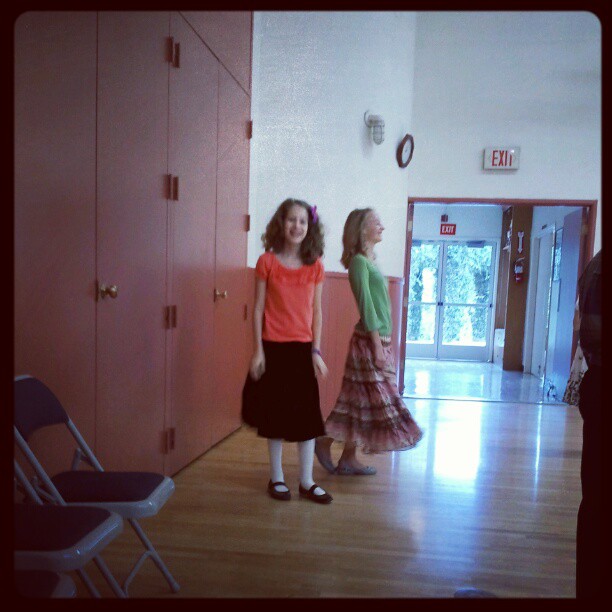

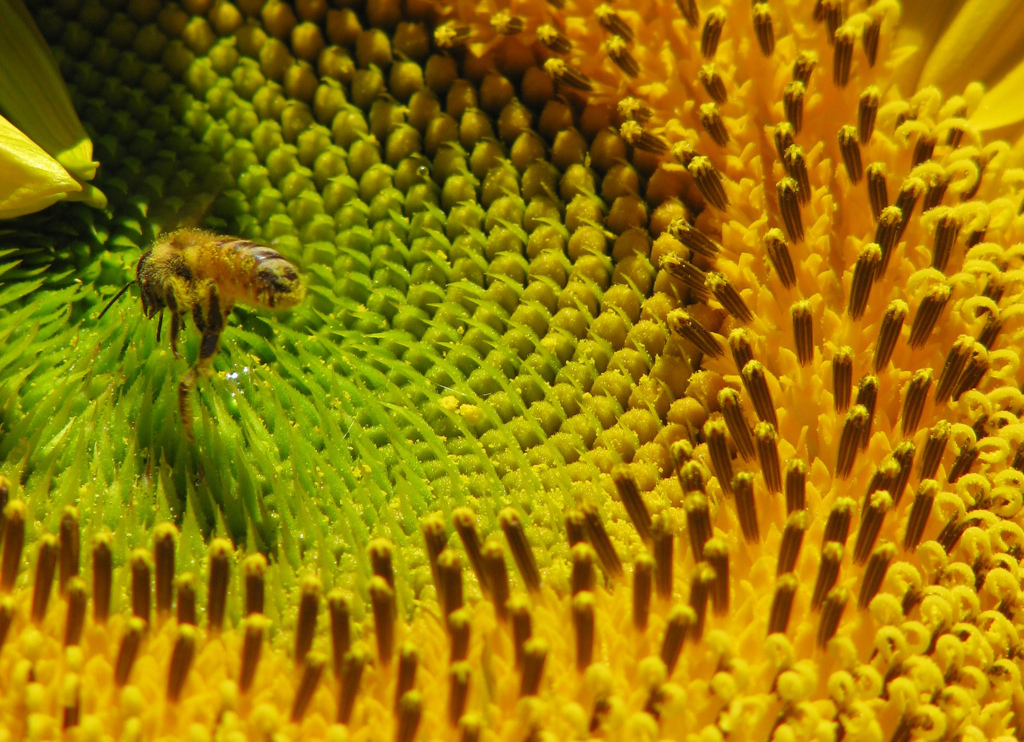
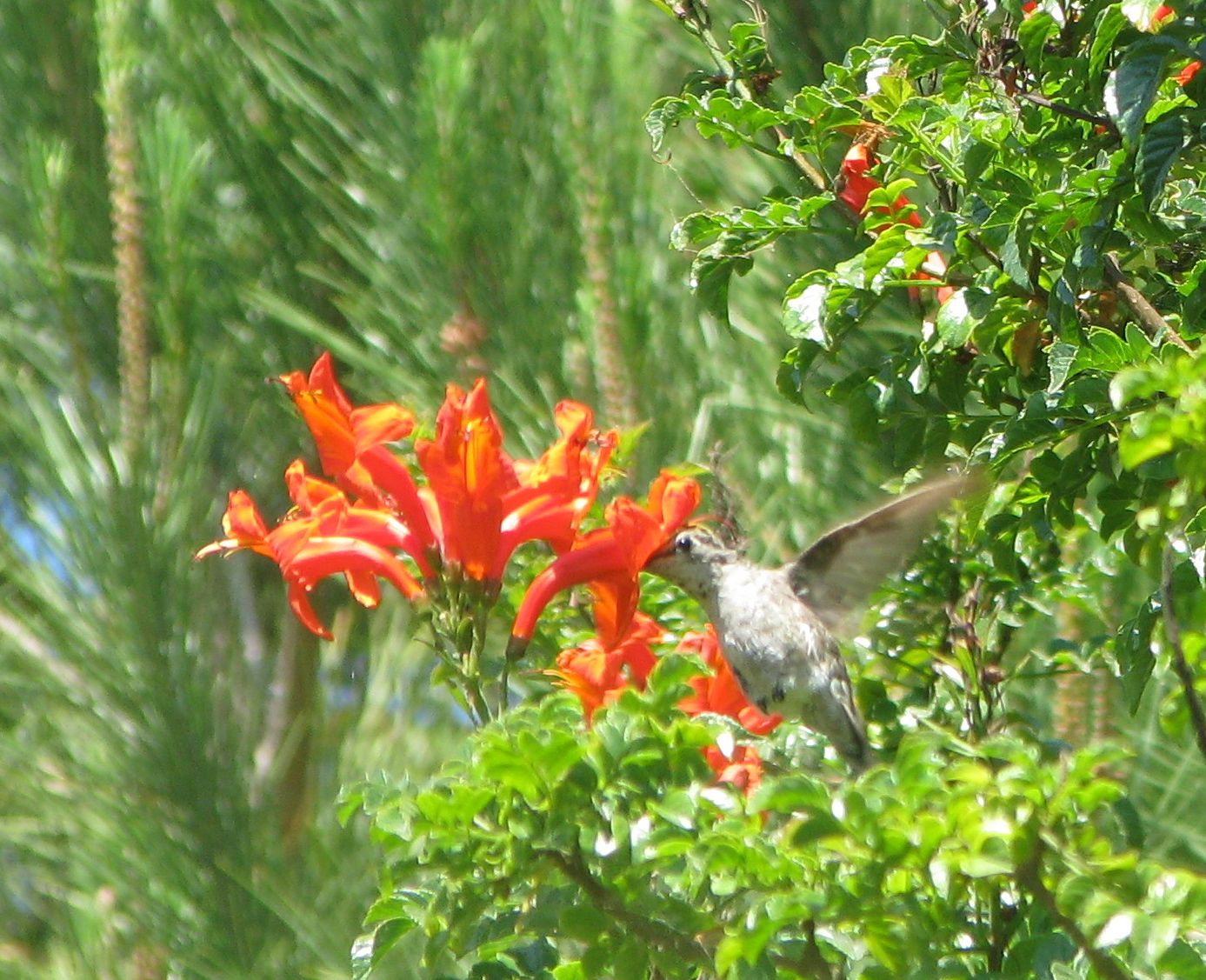
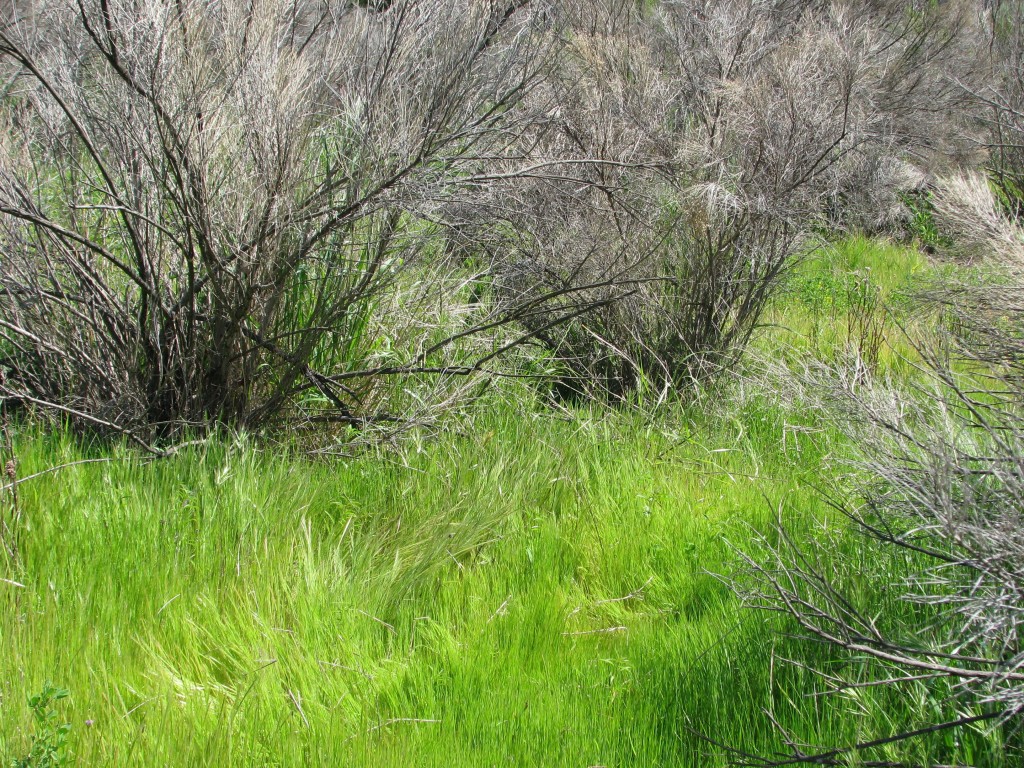

By: Jason Boog,
on 12/4/2012
Blog:
Galley Cat (Mediabistro)
(
Login to Add to MyJacketFlap)
JacketFlap tags:
Awards,
J.K. Rowling,
Terry Pratchett,
Stephen King,
Mary Oliver,
Justin Cronin,
Veronica Roth,
Robert Kirkman,
Gillian Flynn,
Ree Drummond,
Susan Cain,
Deborah Harkness,
E L James,
Cheryl Strayed,
Jenny Lawson,
Stephen Baxter,
Charlie Adlard,
Jae Lee,
M.L. Stedman,
Sally Bedell Smith,
Add a tag
 With 11,525 votes, The Casual Vacancy by J.K. Rowling has won the Best Fiction award at the Goodreads Choice Awards. Earning 20,328 votes, Veronica Roth was named Best Goodreads Author for Insurgent.
With 11,525 votes, The Casual Vacancy by J.K. Rowling has won the Best Fiction award at the Goodreads Choice Awards. Earning 20,328 votes, Veronica Roth was named Best Goodreads Author for Insurgent.
We’ve collected all the winners below, each winner nominated and picked by Goodreads users.
What do you think of the choices?
continued…
New Career Opportunities Daily: The best jobs in media.
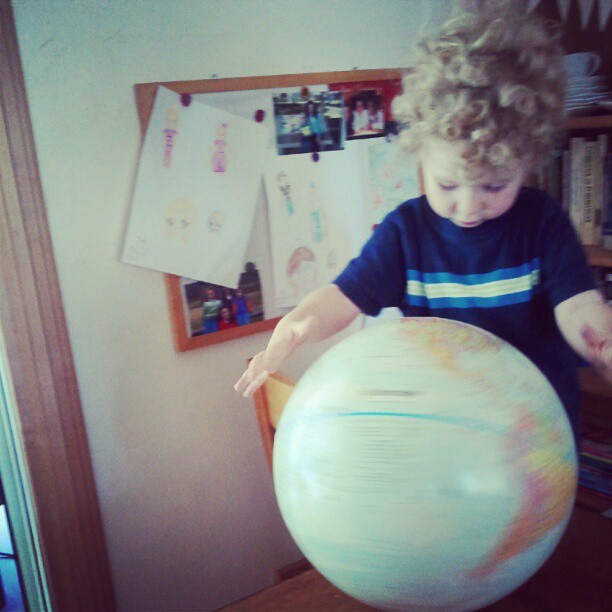
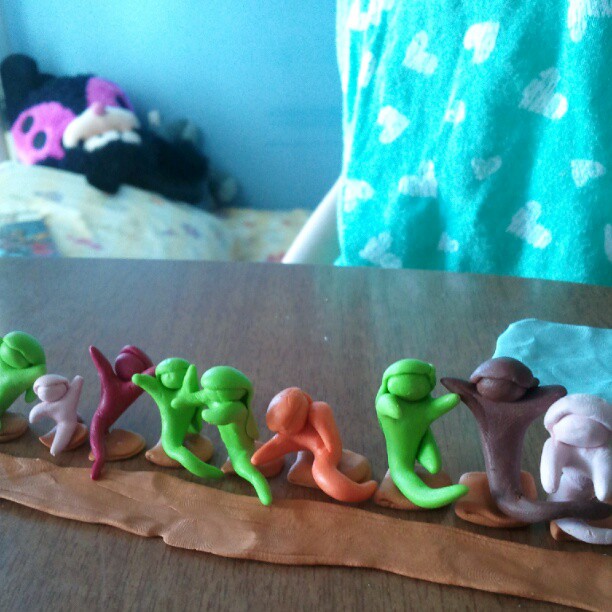

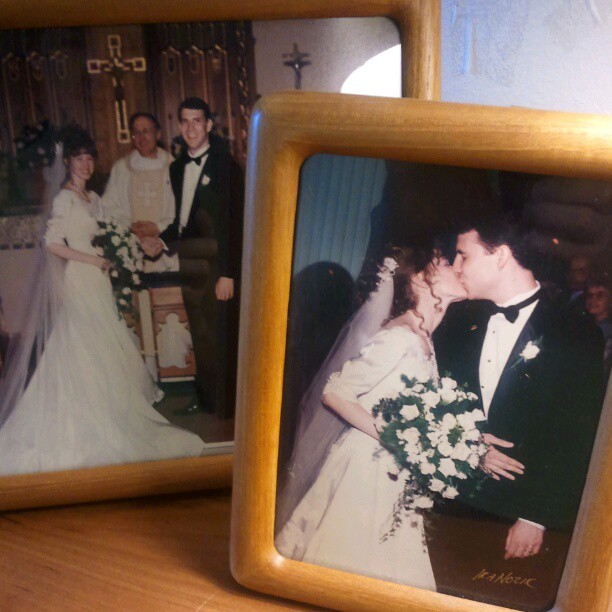
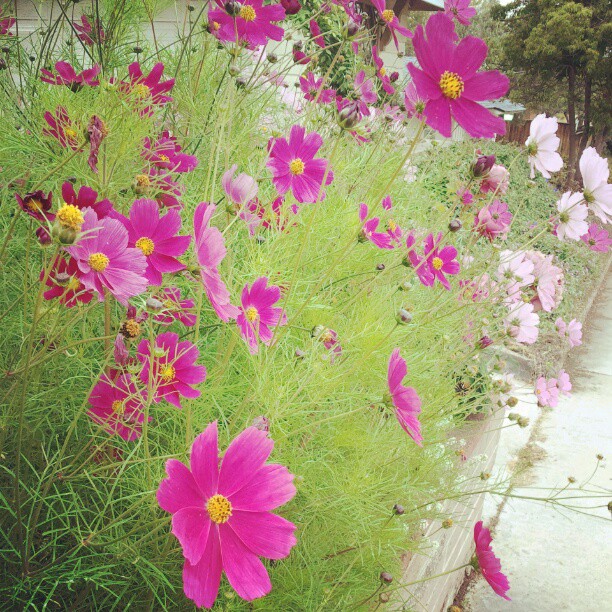
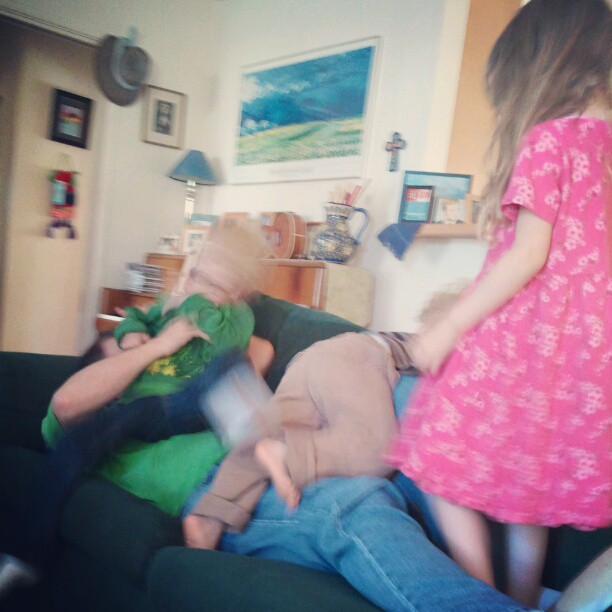
I do know how to pay attention, how to fall down
into the grass, how to kneel down in the grass,
how to be idle and blessed, how to stroll through the fields,
which is what I have been doing all day…
—from “The Summer Day” by Mary Oliver

By:
Beth Kephart ,
on 3/6/2012
Blog:
Beth Kephart Books
(
Login to Add to MyJacketFlap)
JacketFlap tags:
Markus Zusak,
Mary Oliver,
Rita Williams-Garcia,
marilyn nelson,
Ruta Sepetys,
World Read Aloud Day,
Villa Maria Academy,
Helme Heine,
Betty Smith,
Kathryn Erskine,
Jen Bryant,
James Hilton,
Add a tag
This week my Penn students are off for spring break, but I'll be back in (another) classroom tomorrow—this time among the eighth graders of Villa Maria Academy, where I've been asked to share some thoughts and favorite books for World Read Aloud Day.
In preparation I've been sitting on the floor surrounded by books (isn't that where everything begins?). I've been making decisions about what to carry forward.
My choices are these:
Owls and Other Fantasies: Mary Oliver
Carver: Marilyn Nelson
A Tree Grows in Brooklyn: Betty Smith
A River of Words: Jen Bryant/Melissa Sweet
The Marvelous Journey Through the Night: Helme Heine
The Book Thief: Markus Zusak
One Crazy Summer: Rita Williams-Garcia
Mockingbird: Kathryn Erskine
Between Shades of Gray: Ruta Sepetys
Goodbye, Mr. Chips: James Hilton
What will you read, for World Read Aloud Day?

For your weekend reading pleasure, here are our top stories of the week, including free iTunes U courses for book lovers, a tribute blog for Pulitzer Prize-winning poet Mary Oliver and a flying baby photographer hoping for a book deal (photo embedded above).
Click here to sign up for GalleyCat’s daily email newsletter, getting all our publishing stories, book deal news, videos, podcasts, interviews, and writing advice in one place.
1. J.K. Rowling to Publish First Adult Novel
2. 30 Clients Using Computer-Generated Stories Instead of Writers
3. R.L. Stine Posts a Horror Story on Twitter
4. Free iTunes U Courses for Writers & Readers
5. Stephen Colbert Lands Deal for Children’s Book
6. Author Publishes Book as Facebook Photo Album
7. Friends Launch Mary Oliver Tribute Blog
8. Cormac McCarthy Did Not Join Twitter
9. Jeremy Lin Books for Your Kindle
10. Flying Baby Photographer Hopes to Publish Book
New Career Opportunities Daily: The best jobs in media.
 Some coincidences cannot be ignored. A coupla weeks ago I enjoyed a gripping performance of the poem below by Joy Acey, a fellow participant in that Highlights Foundation workshop I keep mentioning. It's one of the poems Joy uses in her workshops with children. Despite my fondness for Mary Oliver's work, it was new to me, and striking.
Some coincidences cannot be ignored. A coupla weeks ago I enjoyed a gripping performance of the poem below by Joy Acey, a fellow participant in that Highlights Foundation workshop I keep mentioning. It's one of the poems Joy uses in her workshops with children. Despite my fondness for Mary Oliver's work, it was new to me, and striking.
Then I found the same celebration of ordinary miracles (go here for the start of this thread) posted on Mary Lee Hahn's Year of Reading blog, with a whole different 84th birthday spin on it.
Today I notice that the actual title of this poem is not "The Grasshopper," or "A Prayer," or even "At last, and too soon." Instead it is "The Summer Day"--not "A Summer Day," but "THE Summer Day," and here it comes. Tomorrow our family will host our 10th Annual Summer Solstice Picnic, a loose affair involving a Ritual Unveiling of Foil and Plastic, watermelon, lightning bugs, mosquitoes, public consumption of alcohol, and quite often a thunderstorm.
Maybe this year, as we drag the picnic tables up the hill to the gazebo, there will be a grasshopper. I'll take sugar just in case.
The Summer Day
by Mary Oliver
Who made the world?
Who made the swan, and the black bear?
Who made the grasshopper?
This grasshopper, I mean-
the one who has flung herself out of the grass,
the one who is eating sugar out of my hand,
who is moving her jaws back and forth instead of up and down-
who is gazing around with her enormous and complicated eyes.
Now she lifts her pale forearms and thoroughly washes her face.
Now she snaps her wings open, and floats away.
I don't know exactly what a prayer is.
I do know how to pay attention, how to fall down
into the grass, how to kneel down in the grass,
how to be idle and blessed, how to stroll through the fields,
which is what I have been doing all day....
Read the rest at
http://www.loc.gov/poetry/180/133.html P.S. More juice: my son is right now telling me that "this pineapple has two kinds of energy, even though it's not moving: heat energy, and citrus energy: the burning acid parts....It's true."

I love lots of Mary Oliver's poetry. She sees and describes nature in a way that puts me RIGHT there with her. And of course her poems are never just about nature--there's always something to tie the poem into our daily lives--the goals we set, the decisions we make. Here's one that floors me with its language. Swans are always depicted as white and graceful and beautiful. But here there's the bondage of its wings (love that!), the shrill dark music, the knifing down black ledges...Delicious:
The Swan
Did you too see it, drifting, all night, on the black river?
Did you see it in the morning, rising into the silvery air -
An armful of white blossoms,
A perfect commotion of silk and linen as it leaned
into the bondage of its wings; a snowbank, a bank of lilies,
Biting the air with its black beak?
Did you hear it, fluting and whistling
A shrill dark music - like the rain pelting the trees - like a waterfall
Knifing down the black ledges?
And did you see it, finally, just under the clouds -
A white cross Streaming across the sky, its feet
Like black leaves, its wings Like the stretching light of the river?
And did you feel it, in your heart, how it pertained to everything?
And have you too finally figured out what beauty is for?
And have you changed your life?
© Mary Oliver. From The Paris Review # 124, Fall, 1992
The Poetry Friday roundup today is with Mary Ann at Great Kid Books.
It's not winter yet, but it feels like it. (23 degrees outside!) Time to be warmed by Mary Oliver's words...
White-Eyes
by Mary Oliver
In winter
all the singing is in
the tops of the trees
where the wind-bird
with its white eyes
shoves and pushes
among the branches.
Like any of us
he wants to go to sleep,
but he's restless—
he has an idea,
and slowly it unfolds
The rest is here.
Poetry Friday is hosted today at Random Noodling
My niece, Emily, would have been thirteen years old yesterday. Her family hosted a purple balloon release at her gravesite. I couldn't be there, but this poem by Mary Oliver is the balloon I'm releasing today.
Blackwater Woodsby Mary Oliver
Look, the treesare turning
their own bodies
into pillars
of light,
are giving off the rich
fragrance of cinnamon
and fulfillment,
the long tapers
of cattails
are bursting and floating away over
the blue shoulders
of the ponds,
and every pond,
no matter what its
name is, is
nameless now.
Every year
everything
I have ever learned
 The extraordinary week that has been this week found me in a classroom last evening among teens who have lived through the hardest kinds of sorrow and who look at now and look ahead and imagine themselves writing. I'd written a talk. It was soon abandoned. It was more important to sit on a desk with my things sprawled about me and listen for the young writers' stories. We talked about whether or not writing heals, and about whether or not it's possible for writers to write what they do not know. Poems were recited from memory. Early plot lines unspooled. A question asked about the pretensions of books versus the power of movies. One of the girls in the room had been reading Undercover; she described it, with great sophistication, to her peers. One of the young men, a science fiction and horror writer, had also tried to read the book. It wasn't for him, he said, and then he worried that his words had somehow wounded.
The extraordinary week that has been this week found me in a classroom last evening among teens who have lived through the hardest kinds of sorrow and who look at now and look ahead and imagine themselves writing. I'd written a talk. It was soon abandoned. It was more important to sit on a desk with my things sprawled about me and listen for the young writers' stories. We talked about whether or not writing heals, and about whether or not it's possible for writers to write what they do not know. Poems were recited from memory. Early plot lines unspooled. A question asked about the pretensions of books versus the power of movies. One of the girls in the room had been reading Undercover; she described it, with great sophistication, to her peers. One of the young men, a science fiction and horror writer, had also tried to read the book. It wasn't for him, he said, and then he worried that his words had somehow wounded.
I had a copy of Mary Oliver's poem "Wild Geese" in my folder. I read it aloud. It was a still and perfect moment, a poem that spoke with force and meaning to the writers in that room. You do not have to be good, the poem begins. You do not have to walk on your knees/for a hundred miles through the desert, repenting.
"I like it a lot," the science fiction writer said. "It means we can be who we are."
View Next 3 Posts



.jpg/800px-Berries_(USDA_ARS).jpg)




















 With 11,525 votes, The Casual Vacancy by J.K. Rowling has won
With 11,525 votes, The Casual Vacancy by J.K. Rowling has won 











I adore Mary Oliver. I love her poetry and now I must get this essay collection.
One more thing to like about you, Beth. You are willing to be in friendship with someone who yells (I am not a fan of yellers) and, what's more, someone who yells in public that "you are what's wrong with America," because you're reading a book in a gym. I can only hope that this was evidence of her strident sense of humor, rather than something she firmly believes. Because, otherwise, she would be yelling at me as, like you, I read during my not-so-regular workouts. #CardioWhileReadingRules